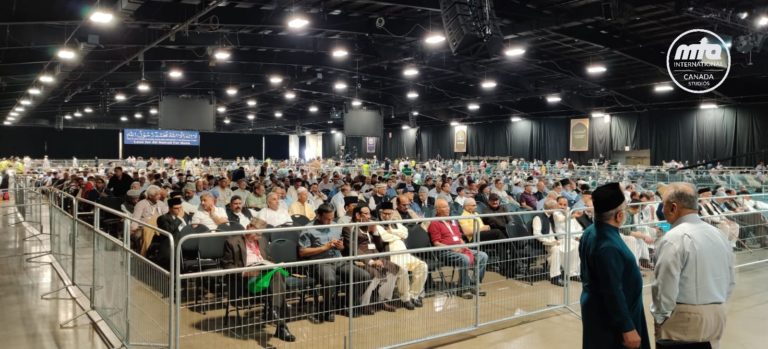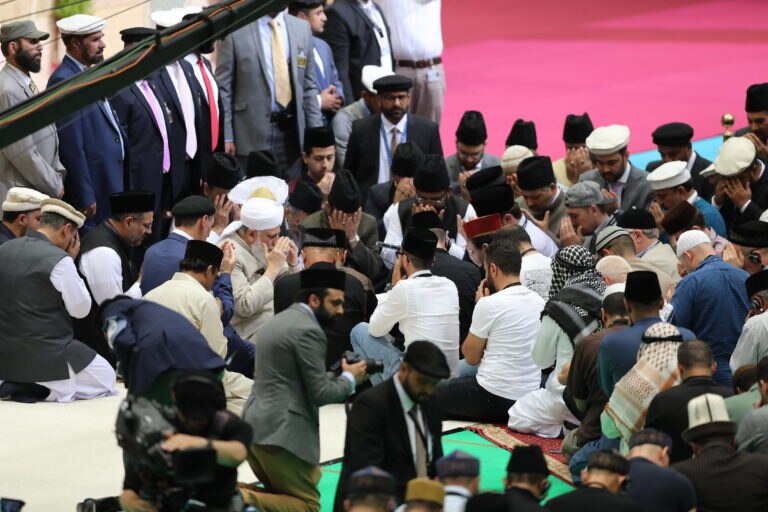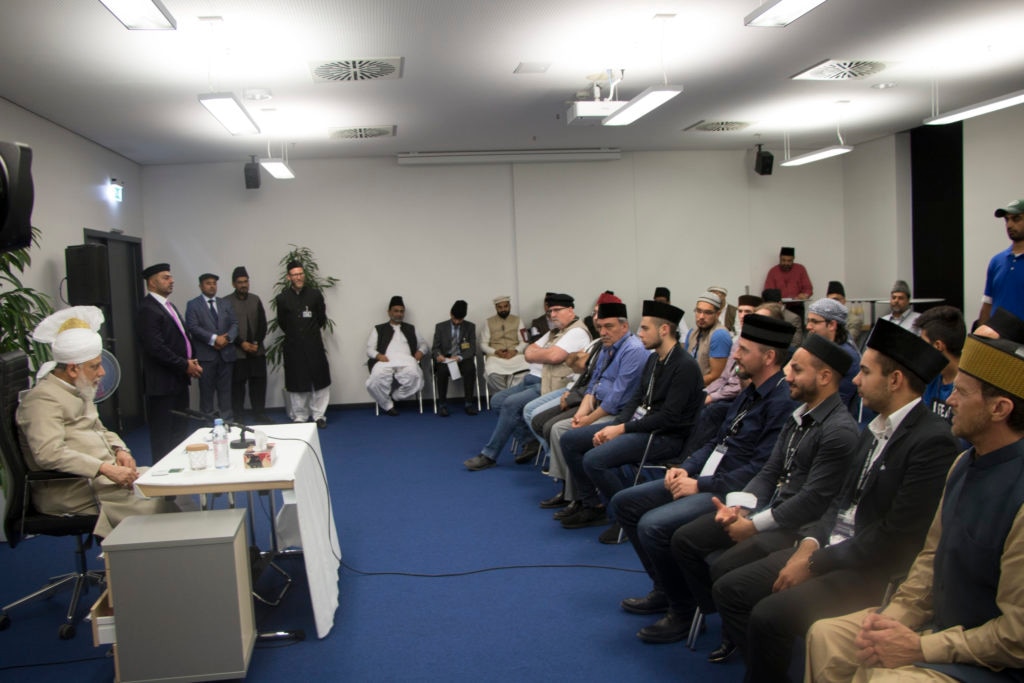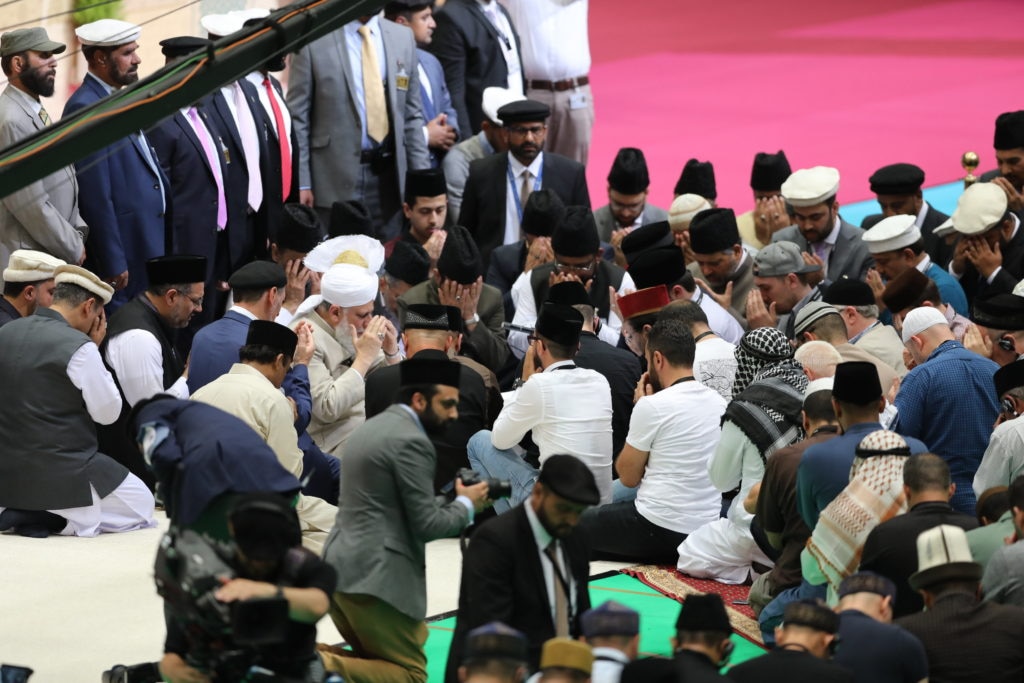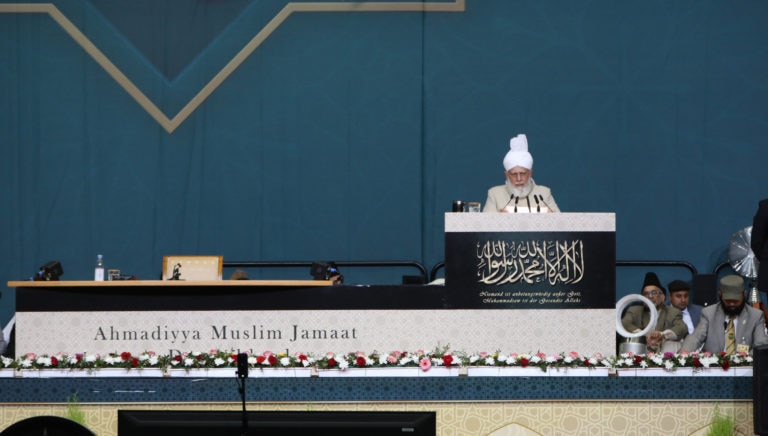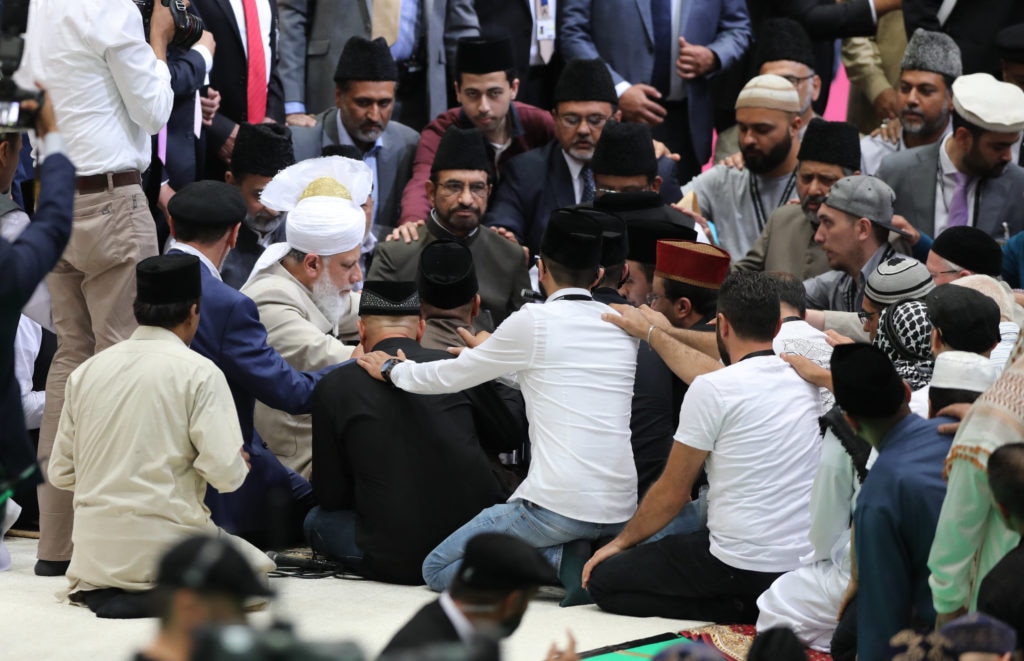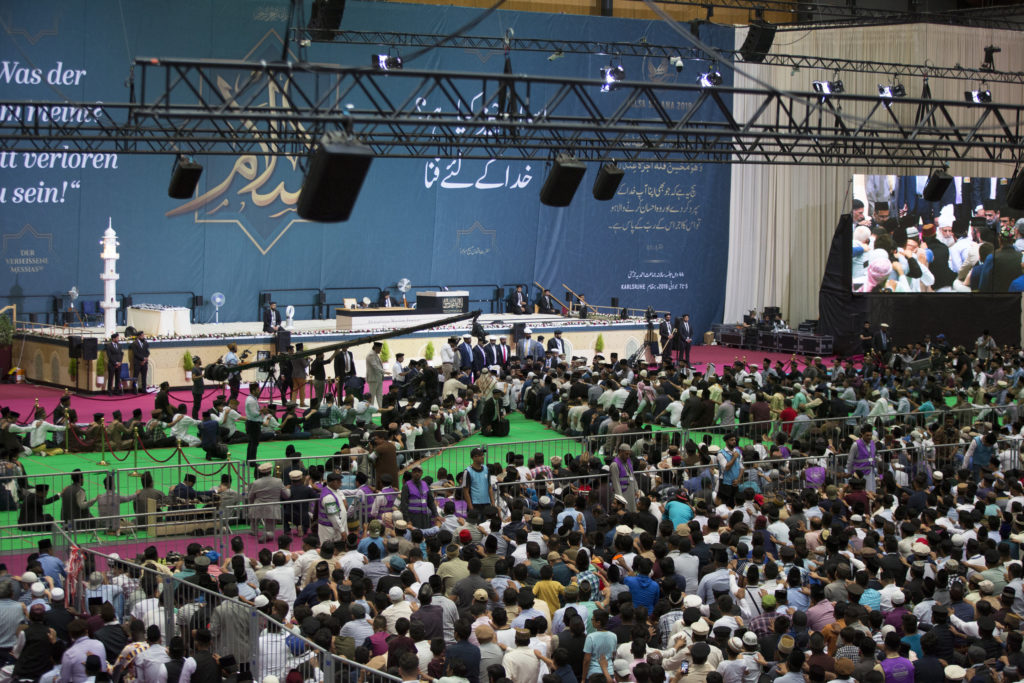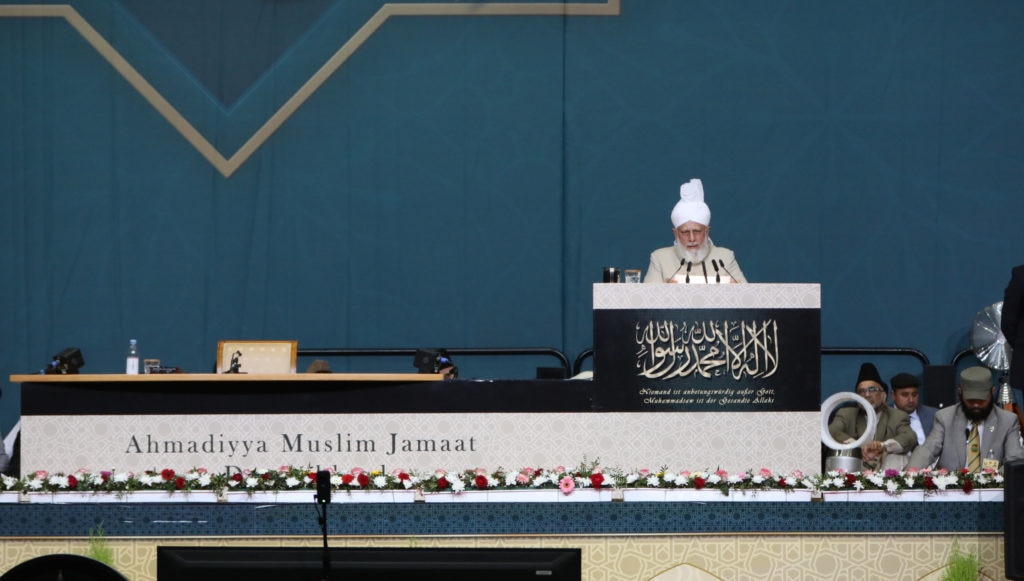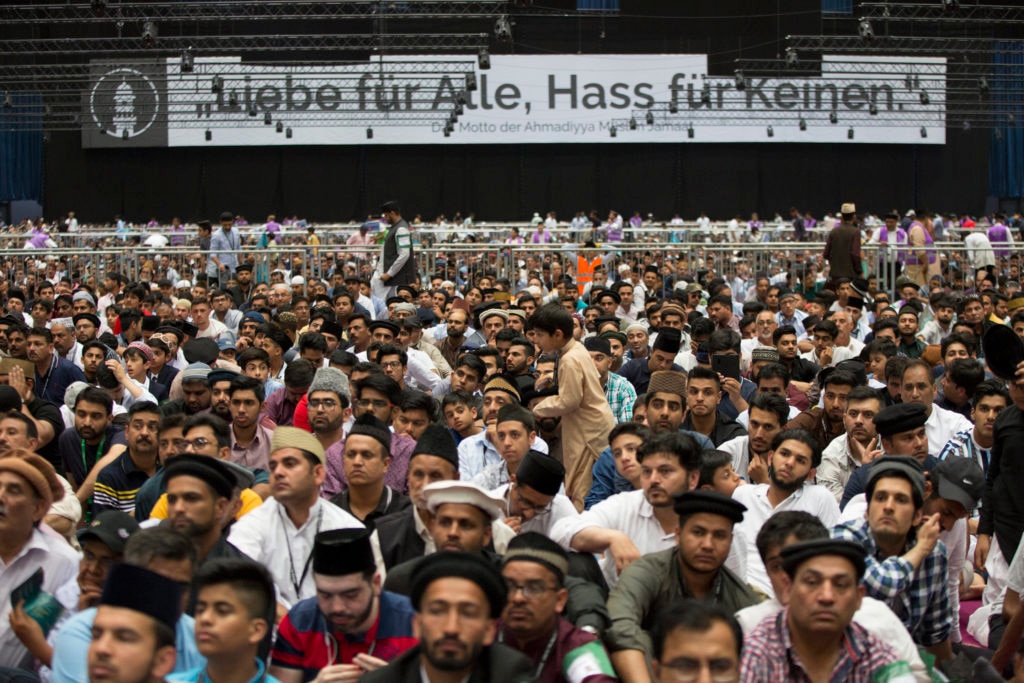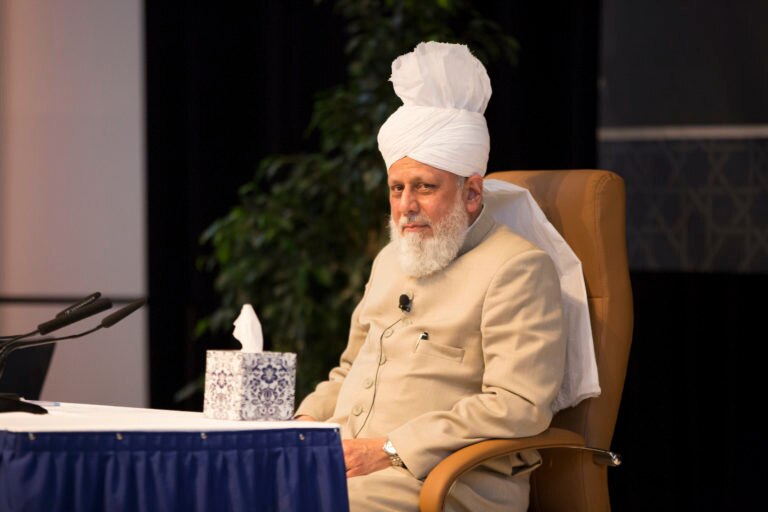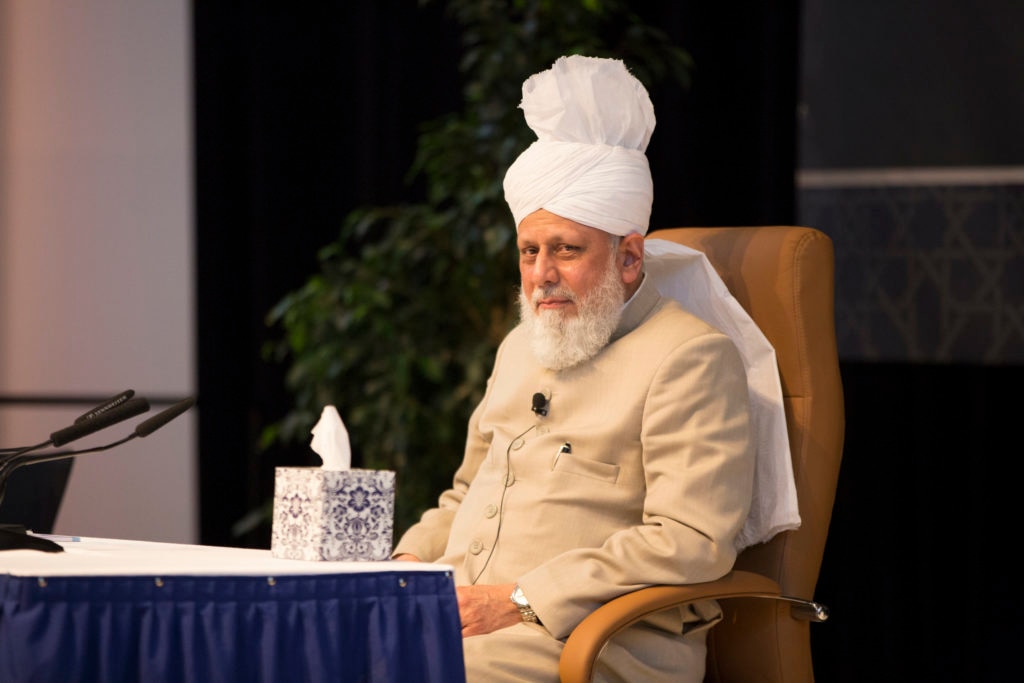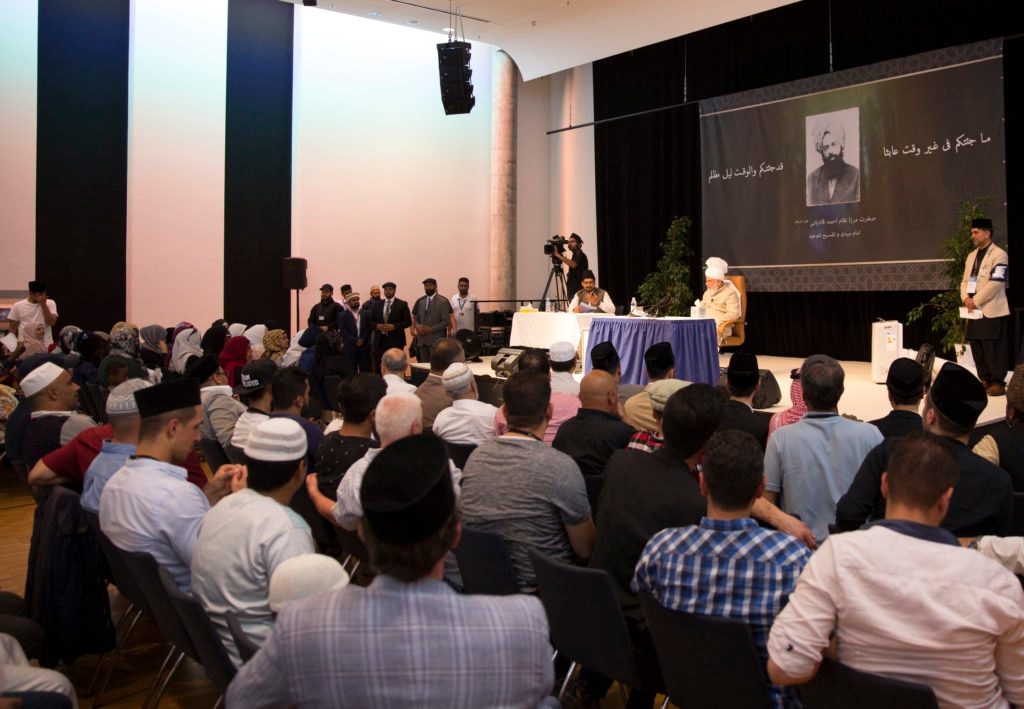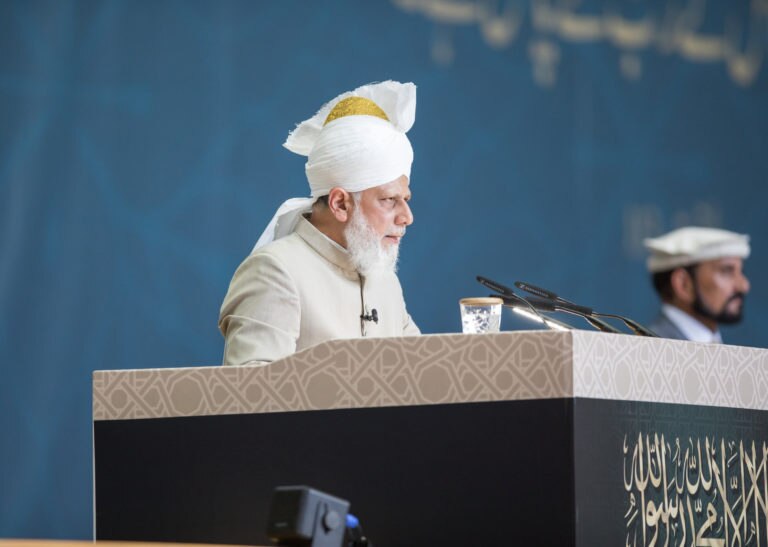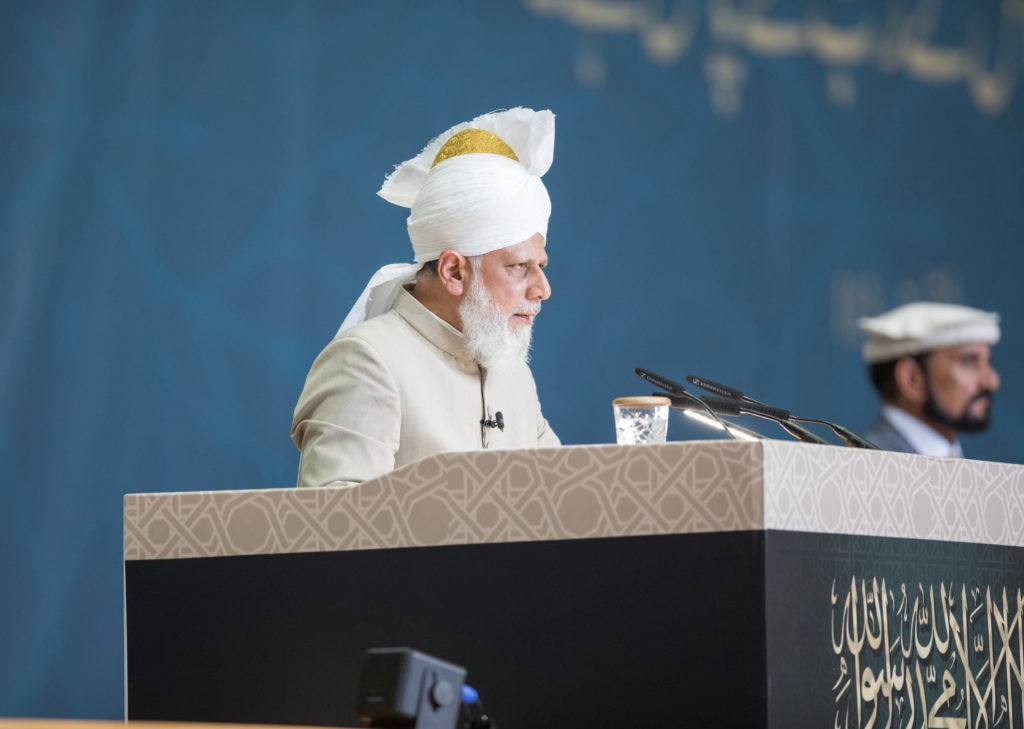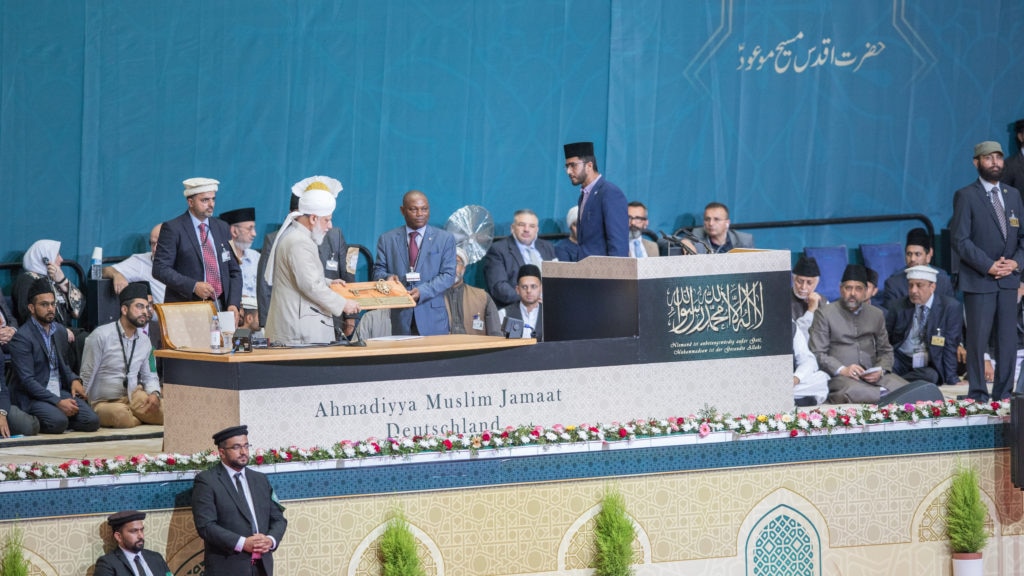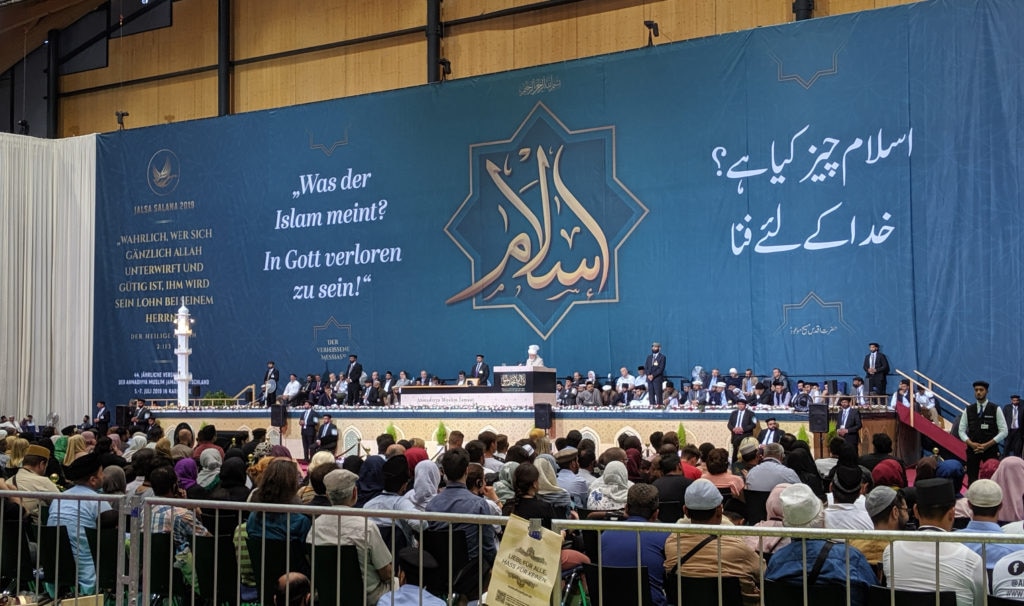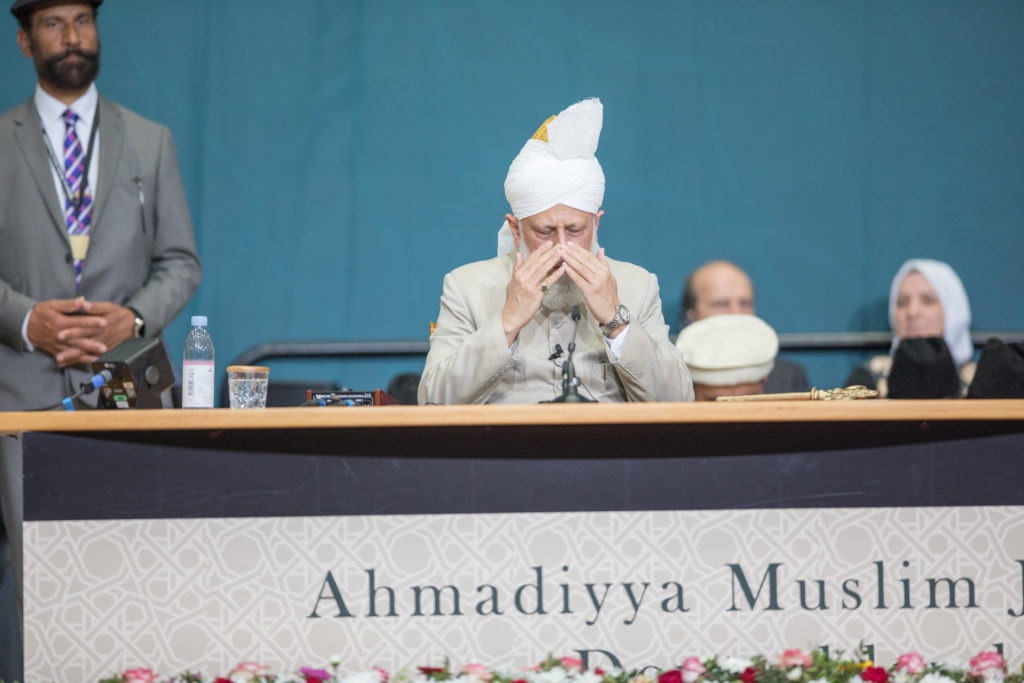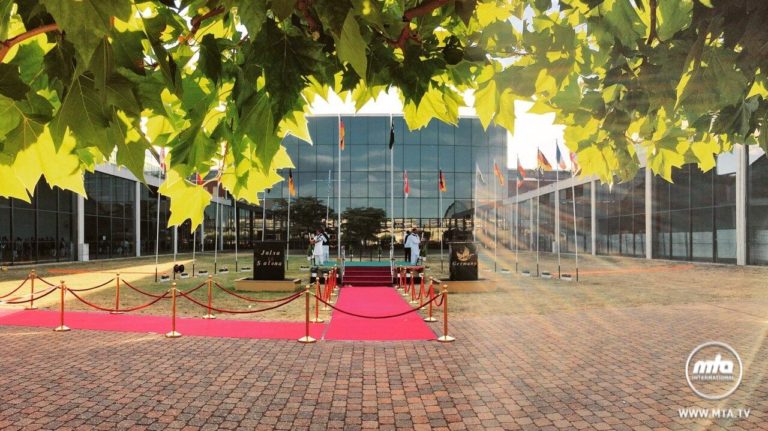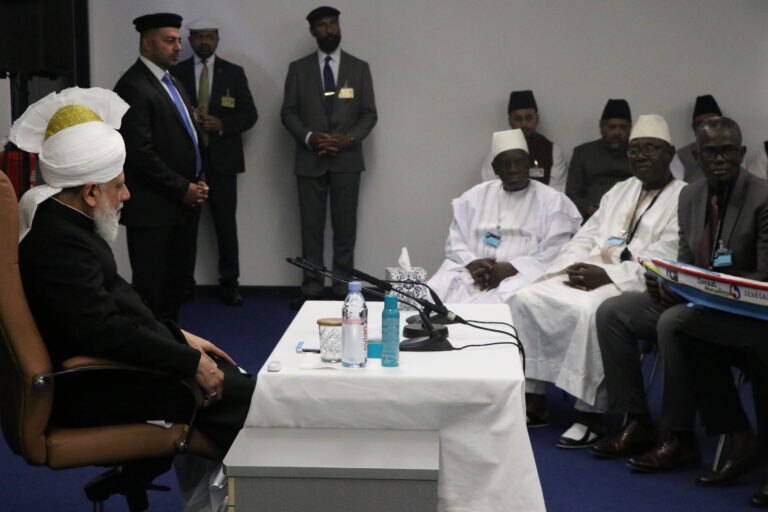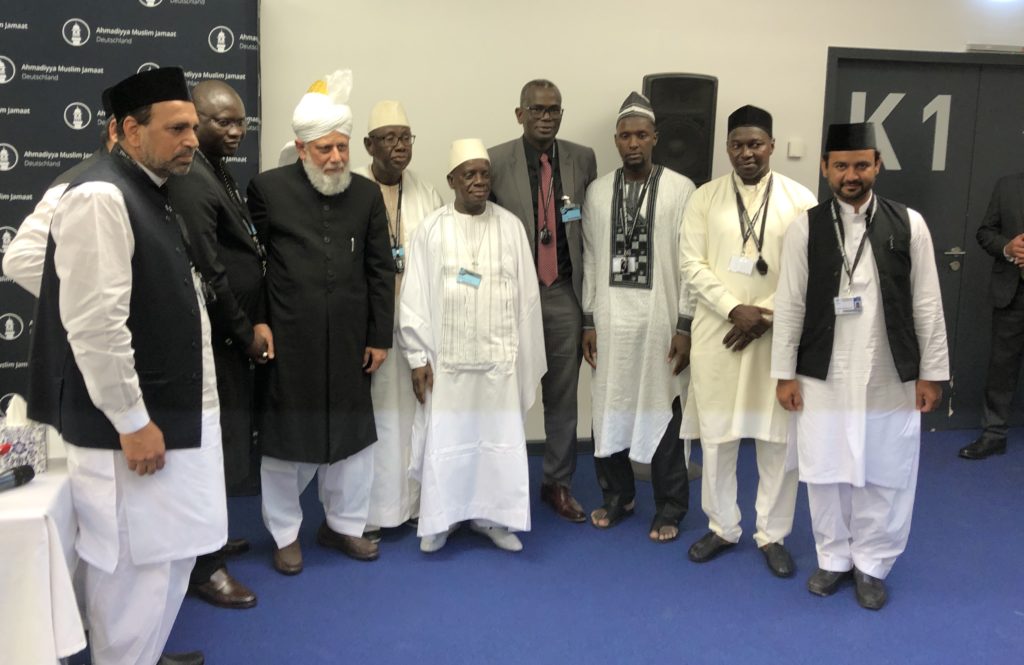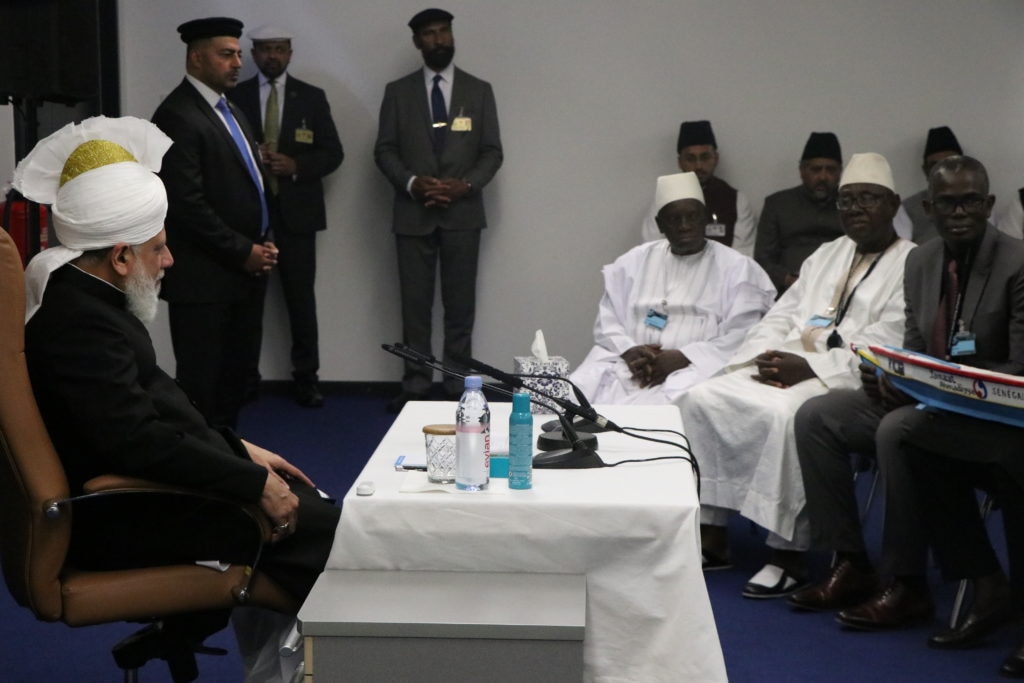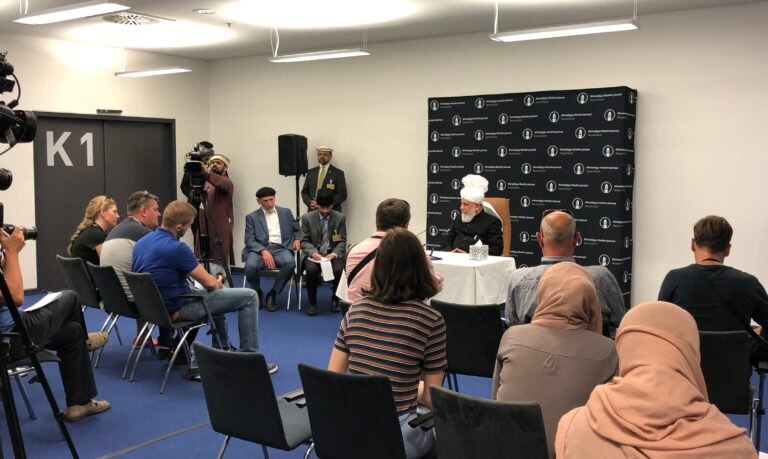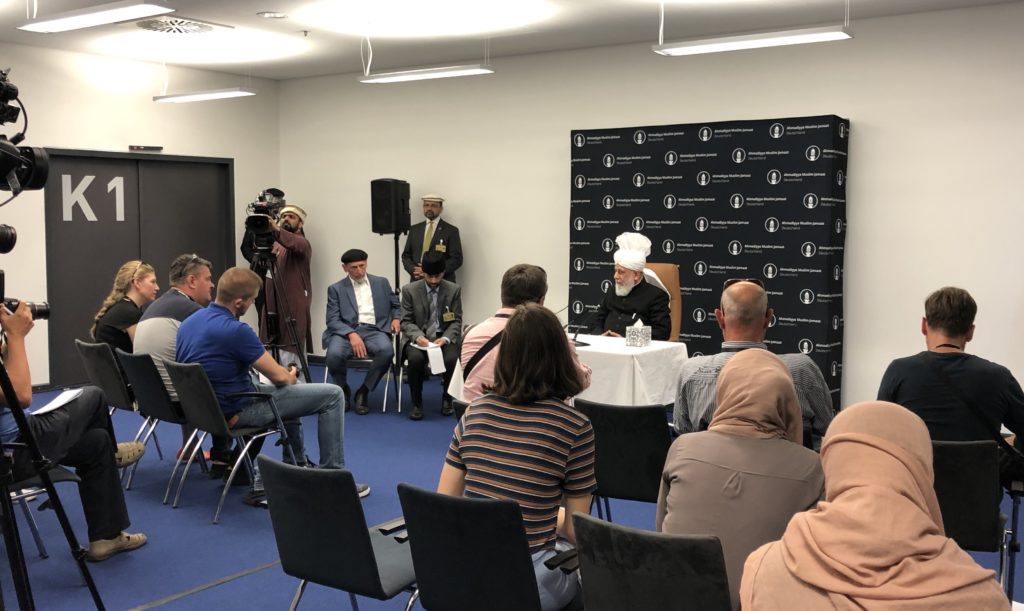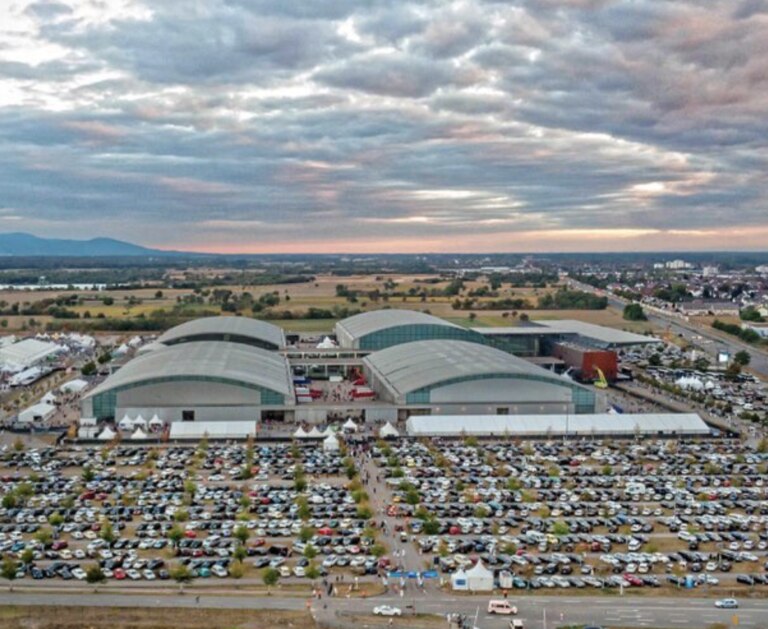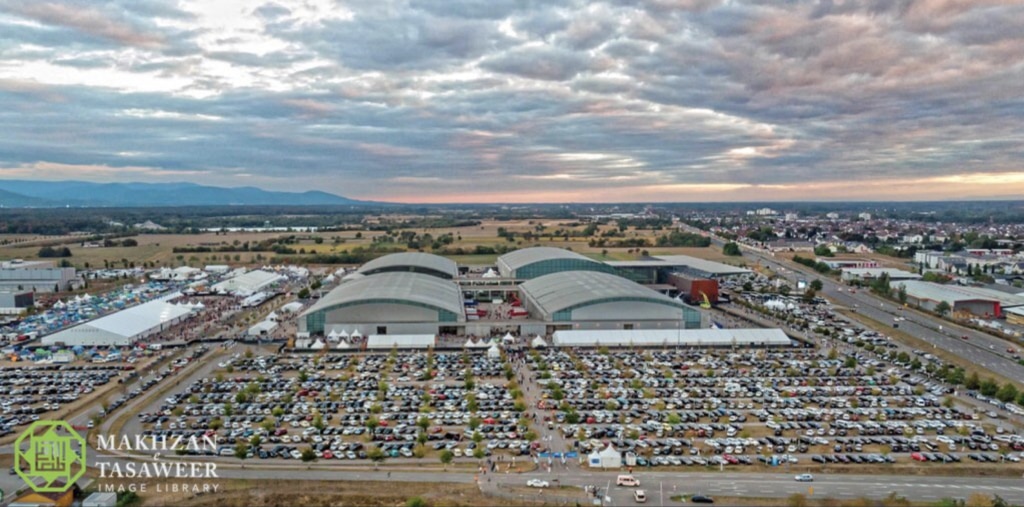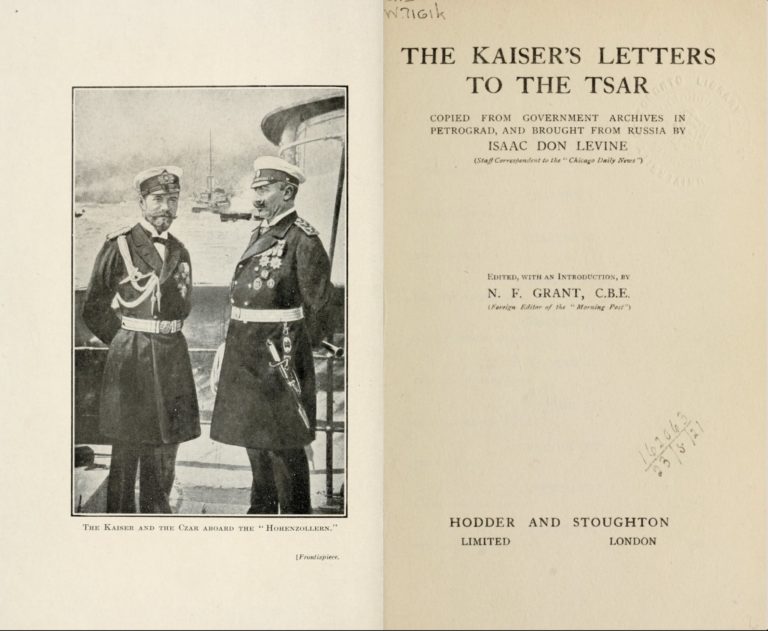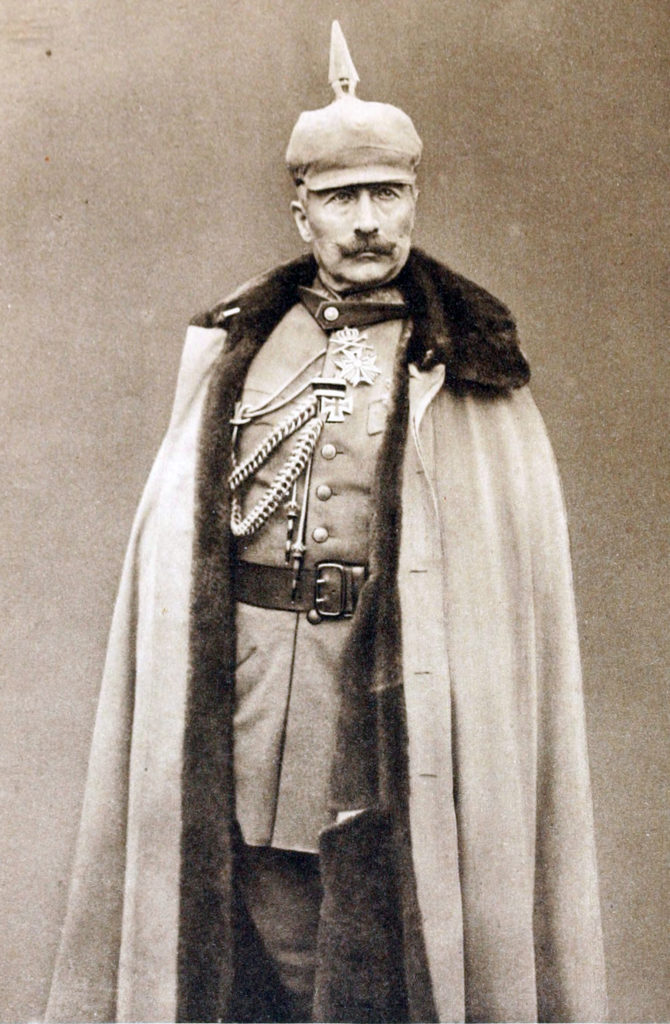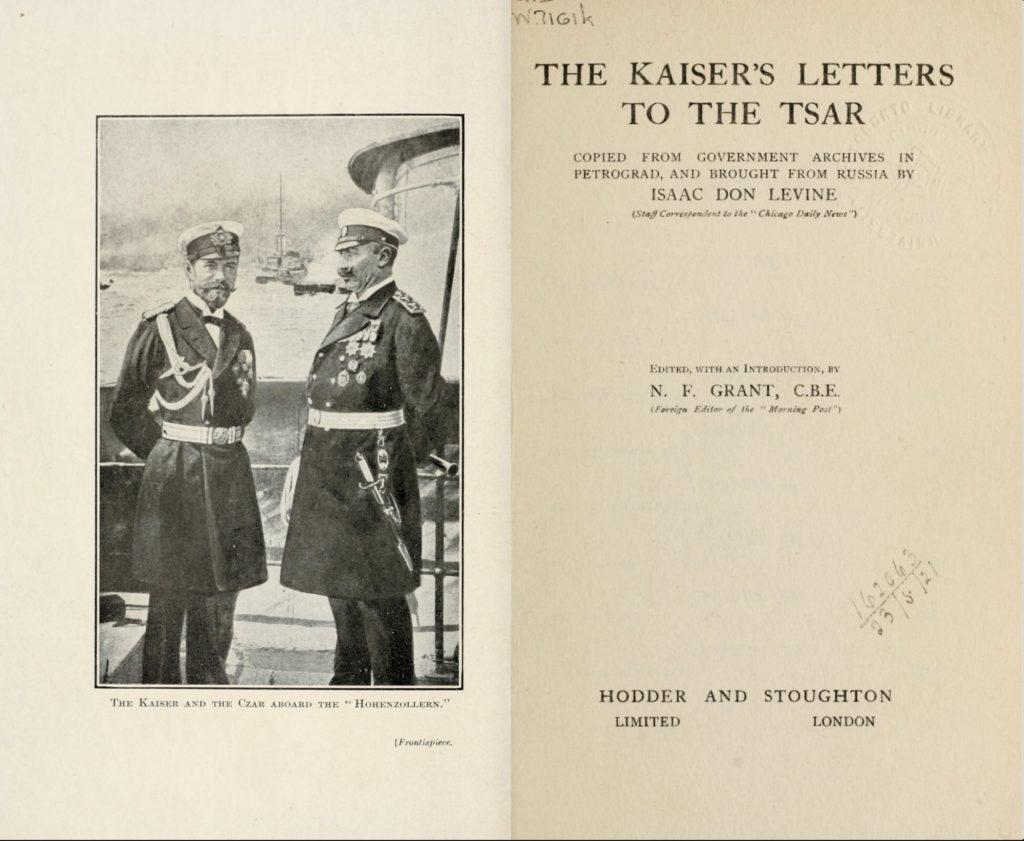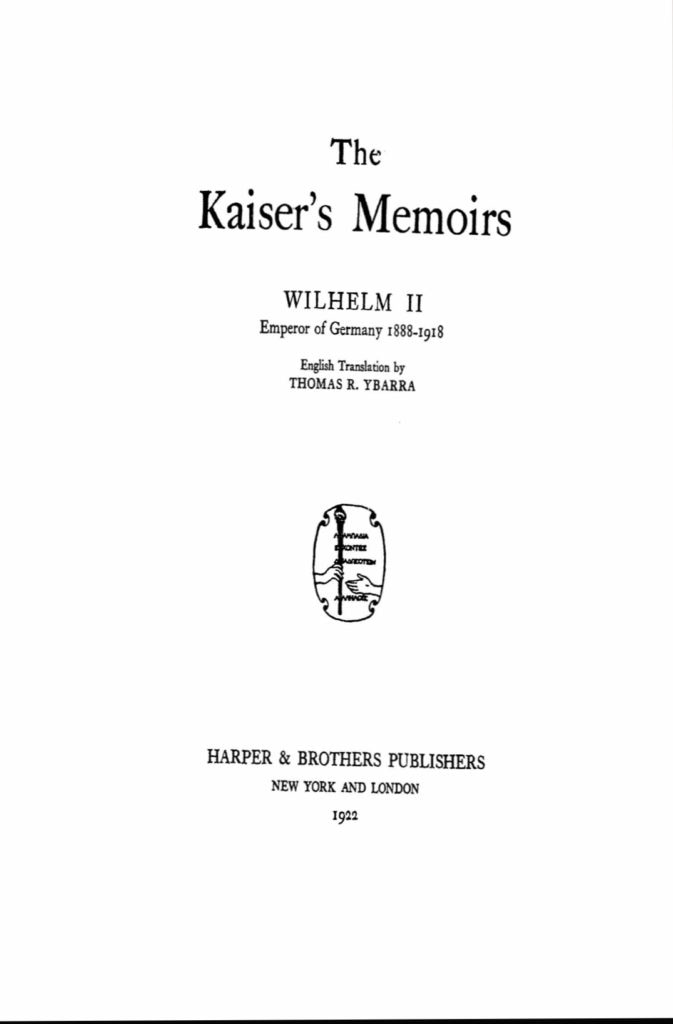Mukarram Nazeer, Canada Correspondent
The 43rd Jalsa Salana Canada was held on 5-7 July 2019 at the International Centre, Mississauga, Ontario, where thousands of devoted members of Jamaat-e-Ahmadiyya from Canada, USA and across the world joined to become recipients of the prayers of the Promised Messiahas.
The first day of this year’s Jalsa started on Friday, 5 July with the recording of the Friday Sermon delivered by Hazrat Khalifatul Masih Vaa at Jalsa Salana Germany. A brief Friday Sermon was then delivered locally by Naib Amir, Hadi Ali Chaudhry Sahib followed by Jumuah prayers. Lunch was served to all guests of the Promised Messiahas.
Press conference
An interactive session with various media representatives during a press conference was a key highlight of the day. Additional Nazir Islah-o-Irshad & Dawat Illallah and Mufti-e-Silsila Ahmadiyya, Mubashir Ahmad Kahlon Sahib, along with National Amir Canada, Lal Khan Malik Sahib, answered questions presented by media representatives.
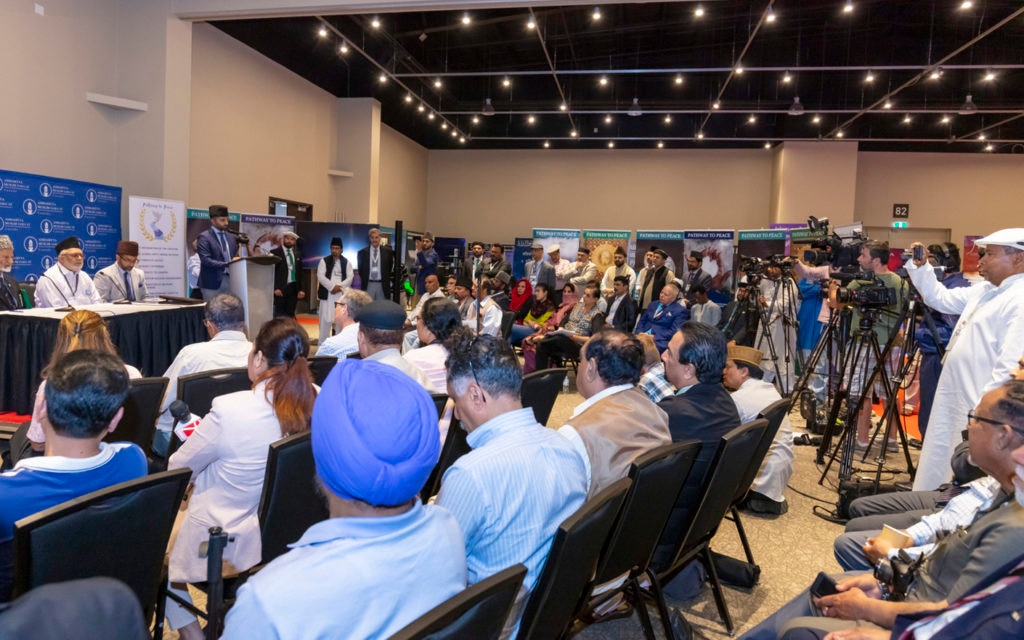
Hoisting of Liwa-e-Ahmadiyyat
Just outside the men’s hall in the plus 30 degree Celsius summer heat of July, Liwa-e-Ahmadiyyat was raised beside the Canadian flag. Silent prayer was led by Markaz Representative, Mubashir Ahmad Kahlon Sahib.
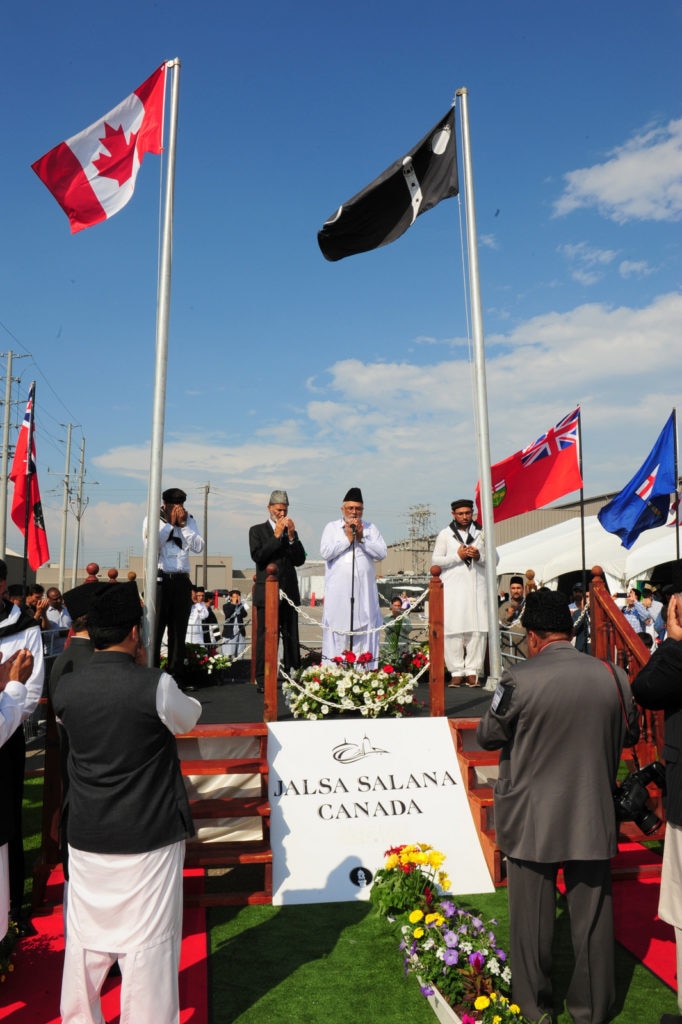
Day 1 – First Session
Back inside, the air-conditioning provided relief to the audience who listened to the recitation of the Holy Quran with translation, which signalled the start of the First Session. Three Khuddam presented a beautiful and harmonious tarana (choral poem) on Khilafat. National Amir Jamaat Canada, Lal Khan Malik Sahib spoke to the attendees on “Turning Fear into Peace”, which was delivered in both English and Urdu.
A beautiful poem with English translation came next followed by an interesting English speech on “Islam: The True Defender of Women’s Rights” delivered by Missionary Vaughan, Imtiaz Ahmad Sra Sahib.
Some announcements and a dinner wrapped up the first session of Jalsa Salana Canada. Jamaat members socialised and enjoyed food, tea, the Bazaar, the bookstore and a exhibition. Volunteers provided excellent assistance in security, parking, first aid, translation, transportation, food preparation, registration, water supply and many more departments.
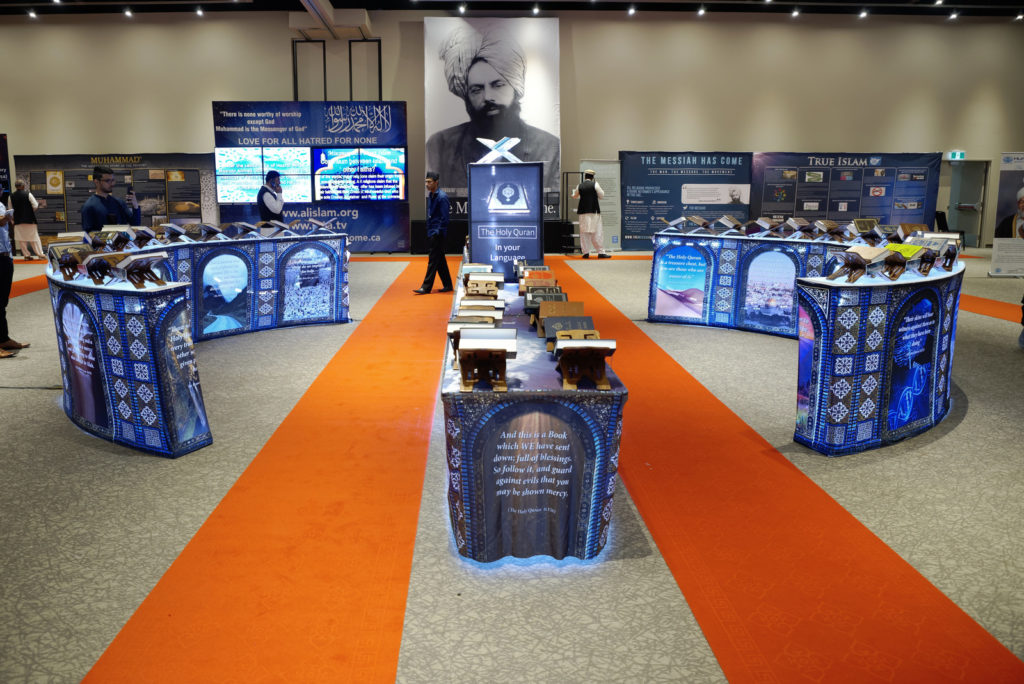
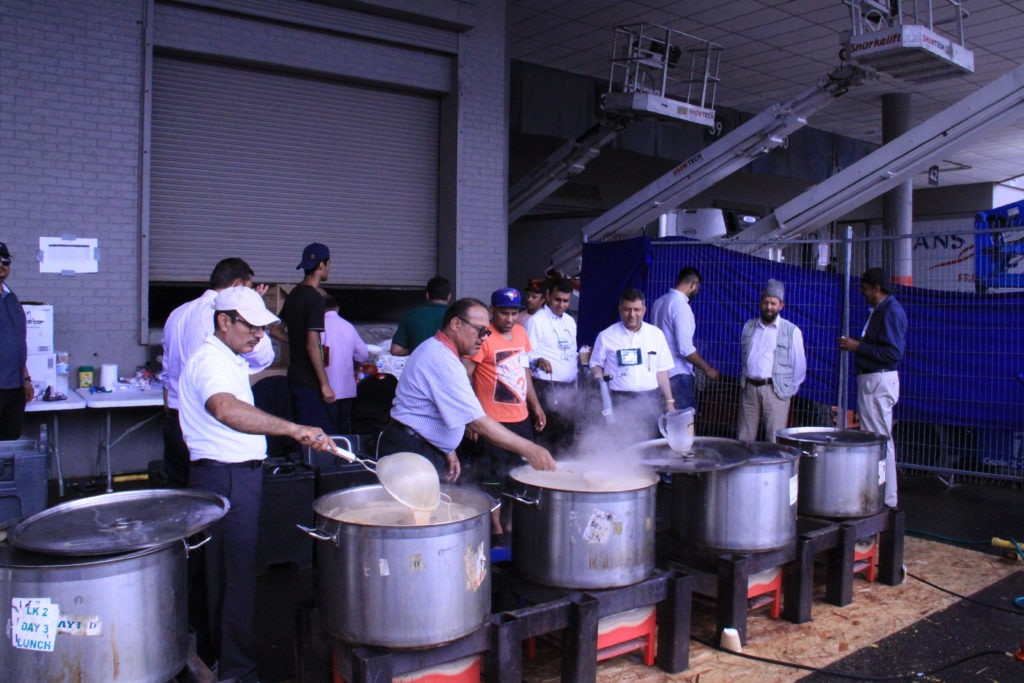
All the Greater Toronto Area mosques and Salat centres held daily congregational Maghrib and Isha prayers for all members.
Day 2
In the darkness of another warm summer morning, pre-dawn Tahajud and Fajr prayers followed by dars were held at all mosques and Salat centres around the Greater Toronto Area.
The Second Session of Jalsa Salana Canada started with the recitation of the Holy Quran and translation. A comforting poem with translation was presented before a presentation on “Faith Inspiring Stories of Ahmadi Martyrs in the Era of Hazrat Khalifatul-Masih II, may Allah be pleased with him” by Mohtamim Umur-e-Tulaba, Majlis Khuddam-ul-Ahmadiyya Canada, Ahmed Bazid Sahi Sahib.
Missionary Peace Village, Attaul Mannan Sahib explained how to give priority to faith over worldly things in his speech, “Experiencing God in a Materialistic World”.
The annual award of Alam-e-Inami Majlis Ansarullah Canada was presented to Emery Village Weston Region. Majlis Khuddam-ul-Ahmadiyya Scarborough South was recognised with the Alam-e-Inami Majlis Khuddam-ul-Ahmadiyya Canada and Majlis Atfal-ul-Ahmadiyya Saskatoon North took the top prize of “Alam-e-Inami Majlis Atfal-ul-Ahmadiyya Canada”.
Various high achieving students received academic achievement awards followed by awards to four dedicated young Huffaz (sing. Hafiz – person who commits the entire Quran to memory) who graduated from the Hifz-ul-Quran School Canada, memorising the entire Quran in a total period between 2-4 years.
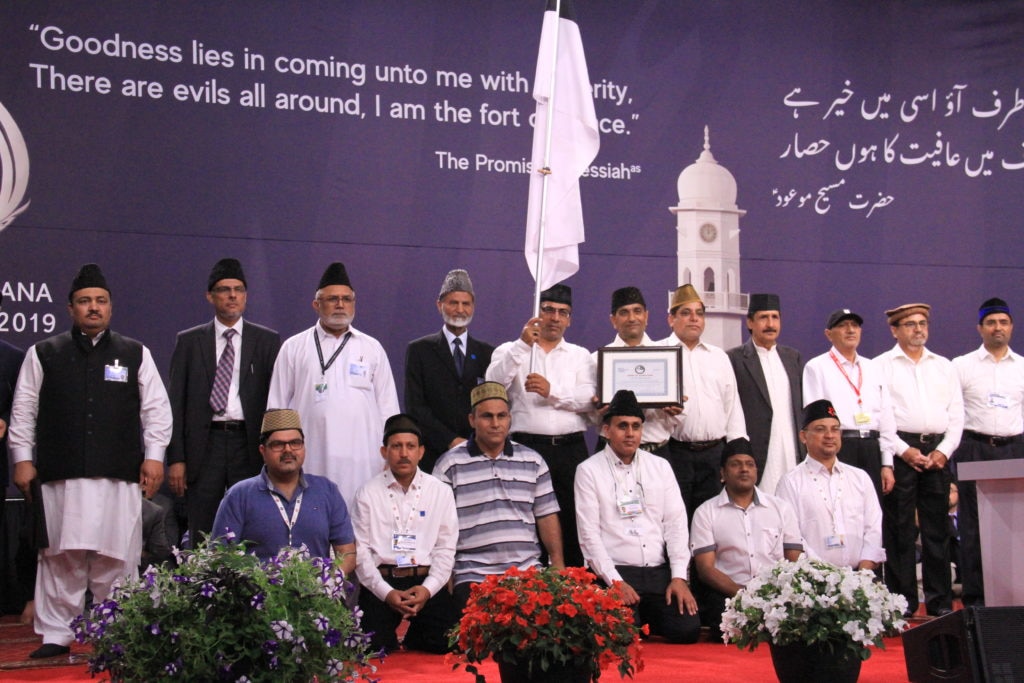
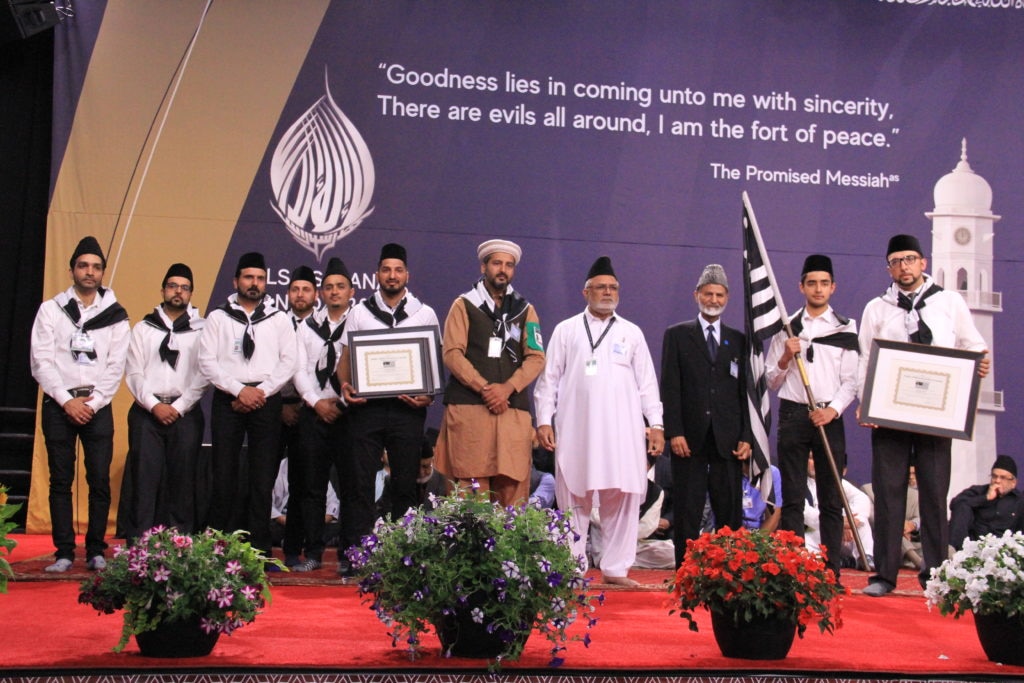
Over 6,000 kilometres away at Jalsa Salana Germany, Hazrat Khalifatul Masih V, may Allah strengthen his hand, had addressed the ladies and the recording of that address was shown at Jalsa Salana Canada. Traditional announcements and lunch service for all attendees brought the Second Session to a close.
After congregational Zuhr and Asr prayers at the Jalsa Gah, the Third Session of Jalsa Salana Canad initiated with the recitation of the Holy Quran, followed by a beautiful poem with translation. Mubashar Ahmad Kahlon Sahib of Rabwah delivered a heart-warming speech titled, “Goodness Lies in Coming Unto Me With Sincerity”.
A well known and respected former Federal Cabinet member and former Minister of Foreign Affairs, Mr Lloyd Axworthy was the recipient of the 8th Annual Sir Muhammad Zafrulla Khan Award for Distinguished Public Service.
The programme shifted focus back to Germany with the recorded address of Hazrat Khalifatul Masih Vaa to the German Guests at Jalsa Salana Germany earlier that day.
After the speech, many familiar faces among the distinguished guests were invited to the stage to present some personal thoughts on Jamaat-e-Ahmadiyya Canada. The Prime Minister of Canada, Mr Justin Trudeau was among the many friends of the Canadian Jamaat who spoke from the podium.
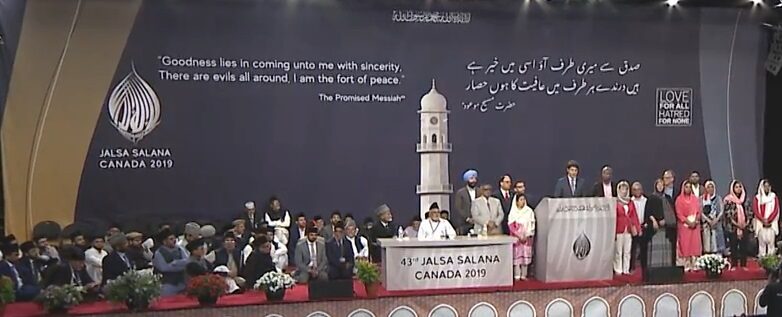
Various announcements concluded the Third Session and Jamaat members along with guests made their way to the food area to benefit from the Langar Khana of the Promised Messiahas. Many members left the Jalsa Gah and quickly gathered for congregational Maghrib and Isha prayers at nearby mosques and Salat centres to add to the spiritual blessings of the day.
Many members also woke up early on the warm, pre-dawn morning to offer Tahajud and Fajr prayers and listen to a dars at one of the many mosques and Salat centres around the Greater Toronto Area.
Day 3
It was an early start to Day 3 of Jalsa Salana Canada as the Fourth and Final Session began with a traditional breakfast service at the Jalsa Gah. Thousands of members and guests prepared for the live broadcast of the International Ba’ait ceremony with Hazrat Amirul Momineen, Khalifatul Masih Vaa from Jalsa Salana Germany. The audience at both Jalsas repeated the words of Ba’ait after Huzooraa in unison. A powerful concluding address was then delivered by Syedna Hazrat Khalifatul Masih Vaa to conclude both Jalsas at the same time.
Many members embraced each other and gave thanks for another successful Jalsa Salana in both countries.
The final lunch of Jalsa Salana Canada was followed by congregational Zuhr and Asr prayers. Huzooraa announced the total Jalsa Salana Canada attendance as 18,572, which included 900 guests and over 1000 Jamaat volunteers, by the grace and blessings of Allah.

